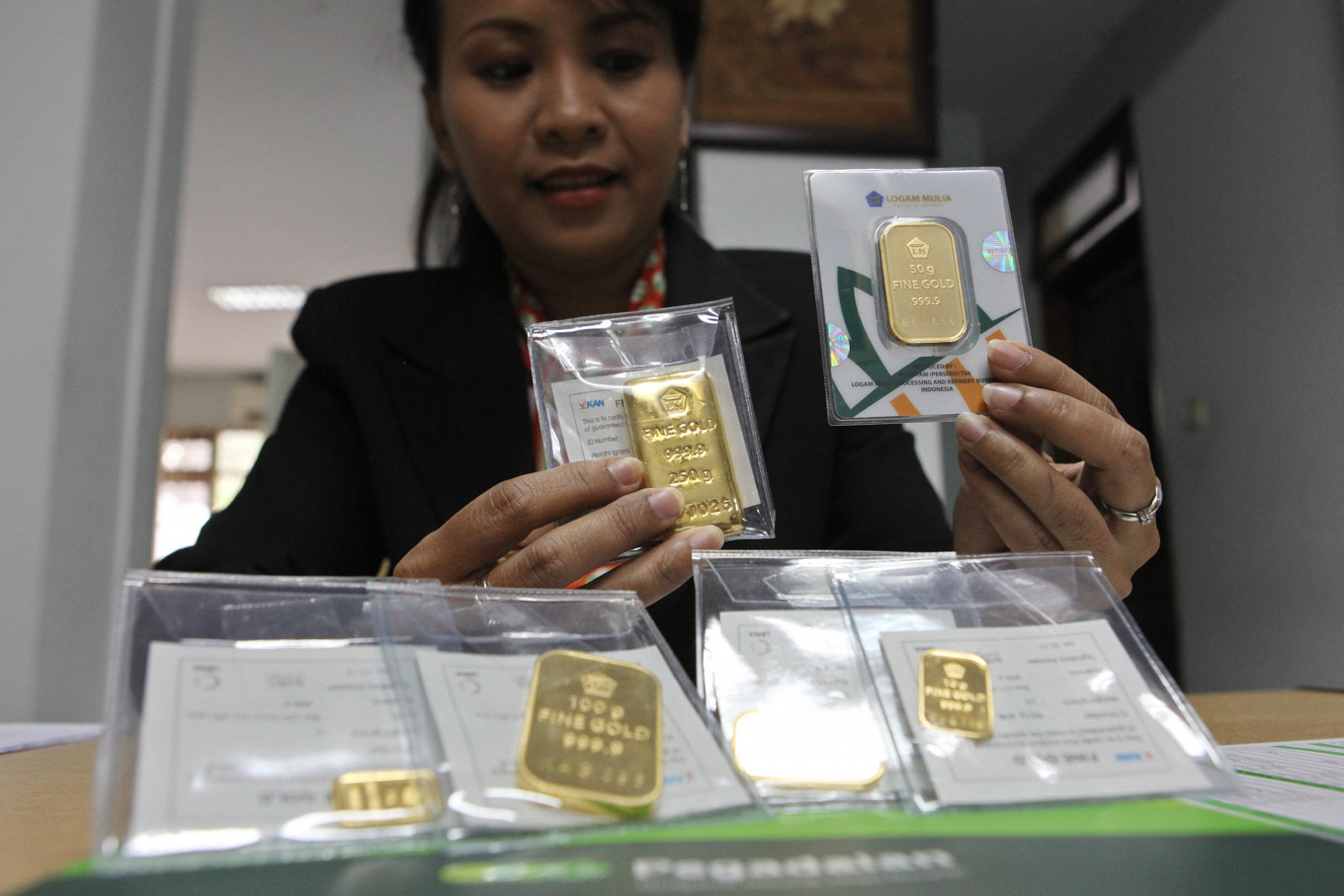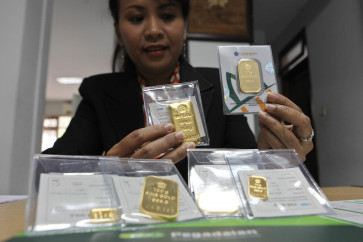Popular Reads
Top Results
Can't find what you're looking for?
View all search resultsPopular Reads
Top Results
Can't find what you're looking for?
View all search resultsAnalysis: HS Codes Manipulation in 189 trillion Gold Import Case
Change text size
Gift Premium Articles
to Anyone
 An employee shows gold at the Pegadaian Office, Jalan Bendungan Hilir Raya, Jakarta, Monday (17/02). PT Pegadaian (Persero) in 2013 Pegadaian gold sales reached around Rp 1.3 trillion. This amount increased compared to 2012 which was around Rp 1.05 trillion. And in 2014 targeting gold sales to Rp 2.5 trillion. (JP/Nurhayati)
An employee shows gold at the Pegadaian Office, Jalan Bendungan Hilir Raya, Jakarta, Monday (17/02). PT Pegadaian (Persero) in 2013 Pegadaian gold sales reached around Rp 1.3 trillion. This amount increased compared to 2012 which was around Rp 1.05 trillion. And in 2014 targeting gold sales to Rp 2.5 trillion. (JP/Nurhayati)
T
he case of suspicious transactions involving the import of gold bars is now the top priority of the Prevention and Eradication of Money Laundering Task Force (TPPU). The task force, led by Coordinating Political, Legal and Security Affairs Minister Mahfud MD, suspects the existence of a modus operandi of falsifying the Harmonized System (HS) code in the case of import duty and export tax evasion related to gold imports and exports, which caused a loss to the state of more than Rp 189 trillion (US$12.85 billion).
The Financial Transaction Reports and Analysis Centre (PPATK) reported the alleged HS manipulation mode in gold import activities worth Rp 47.1 trillion for possible money laundering to the Finance Ministry back in 2017. However, the report only received a response from Finance Minister Sri Mulyani during her meeting with PPATK on March 14. The alleged use of HS code falsification in the gold import case further strengthens previous suspicions of the involvement of individuals in the Customs and Excise Directorate General in a money laundering case.
The modus operandi of falsifying HS codes is intended to avoid paying taxes and duties on gold imports, which fall under the supervision of the Finance Ministry’s Customs and Excise Directorate General. Under the customs and excise provisions, there are four classifications of gold import duty rates:
- HS 7108.12.10: gold bars are to be reprocessed as lumps, ingots or casting rods, not subject to import duty.
- HS 7108.12.90: gold bars other than in the form of lumps, ingots or ingots is subject to a 5 percent import duty.
- HS 7108.13.00: other semifinished forms of imported gold are subject to a 5 percent import duty.
- HS 7115.90.10: gold bars that are immediately ready to be sold are subject to a 5 percent import duty.
According to an investigation by Tempo, the modus operandi for evading gold import duties involved falsifying the HS code for imported gold. It was done in a way that resulted in discrepancies between the data in the declaration notes of the commodity's country of origin and that of the importing country. For instance, when an Indonesian importer imported gold, the HS code on import and custom clearance documents in Singapore was recorded as HS 7108.13.00 or "half-finished gold," which required a 5 percent import duty. However, upon arrival at Indonesia’s customs, the HS code on the document was altered to HS 7108.12.10 or "gold bars to be reprocessed" to avoid paying import duties, resulting in a duty rate of 0 percent.
During a hearing between House Commission III and the National Coordinating Committee for the Prevention and Eradication of Money Laundering last month, National Mandate Party (PAN) legislator Sarifuddin Suding said he suspected most of the gold import-export cases involving nine companies were related to illegal mining, and asked the National Police and the Attorney General’s Office (AGO) to investigate the potential illegal mining link to the Rp 189 trillion in suspicious transactions.
What’s more
The customs office’s international and inter-institutional customs director Syarif Hidayat shifted the blame for HS manipulation to the importers. He argued that the customs office’s duty was only to verify whether the importer's report aligned with the import documents. Worse, according to Trade Ministry’s trade security director Pradnyawati, there were no regulations specifically governing sanctions for importers’ transferring HS codes, which is part of circumvention actions in international trade activities.


















